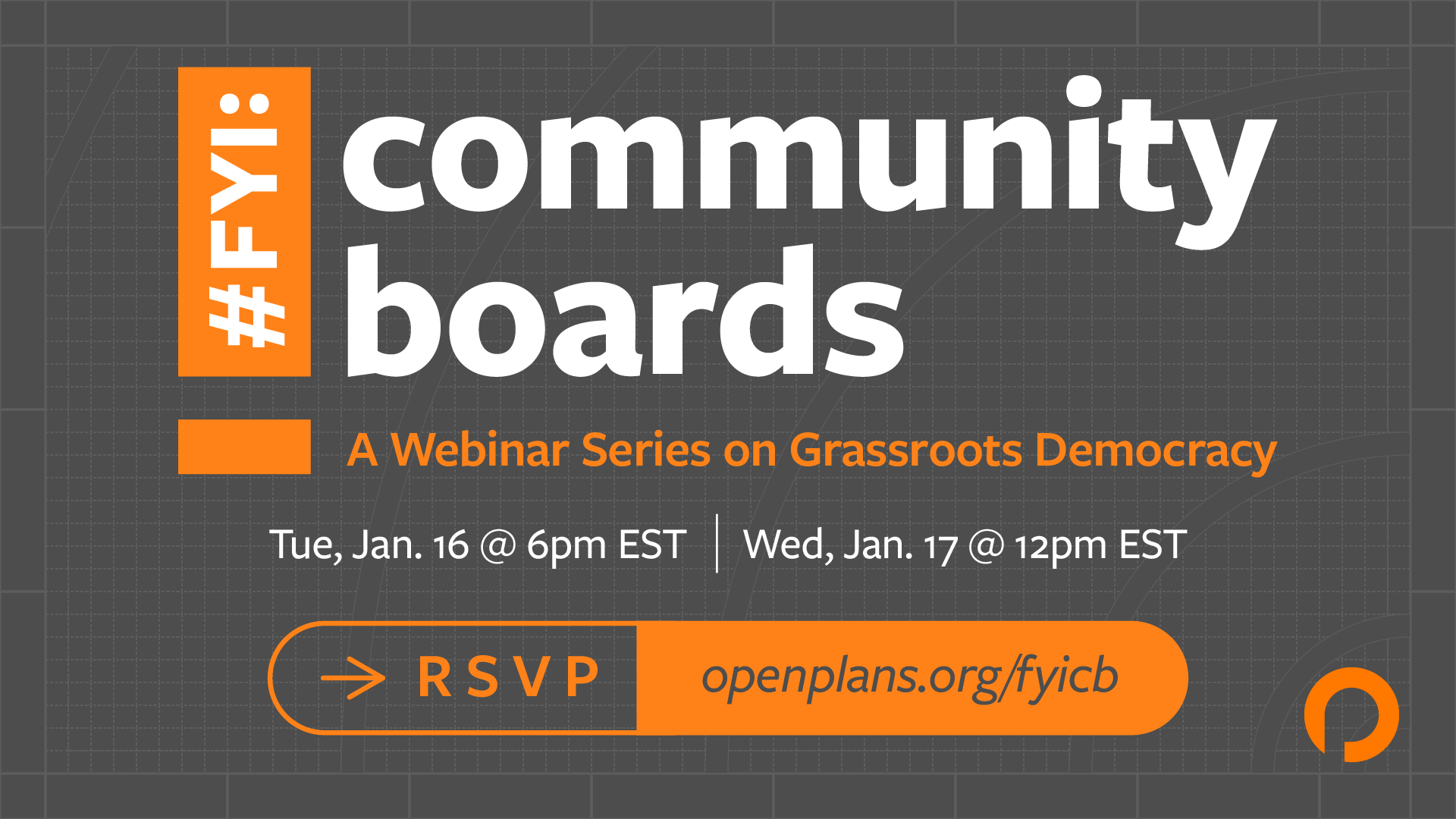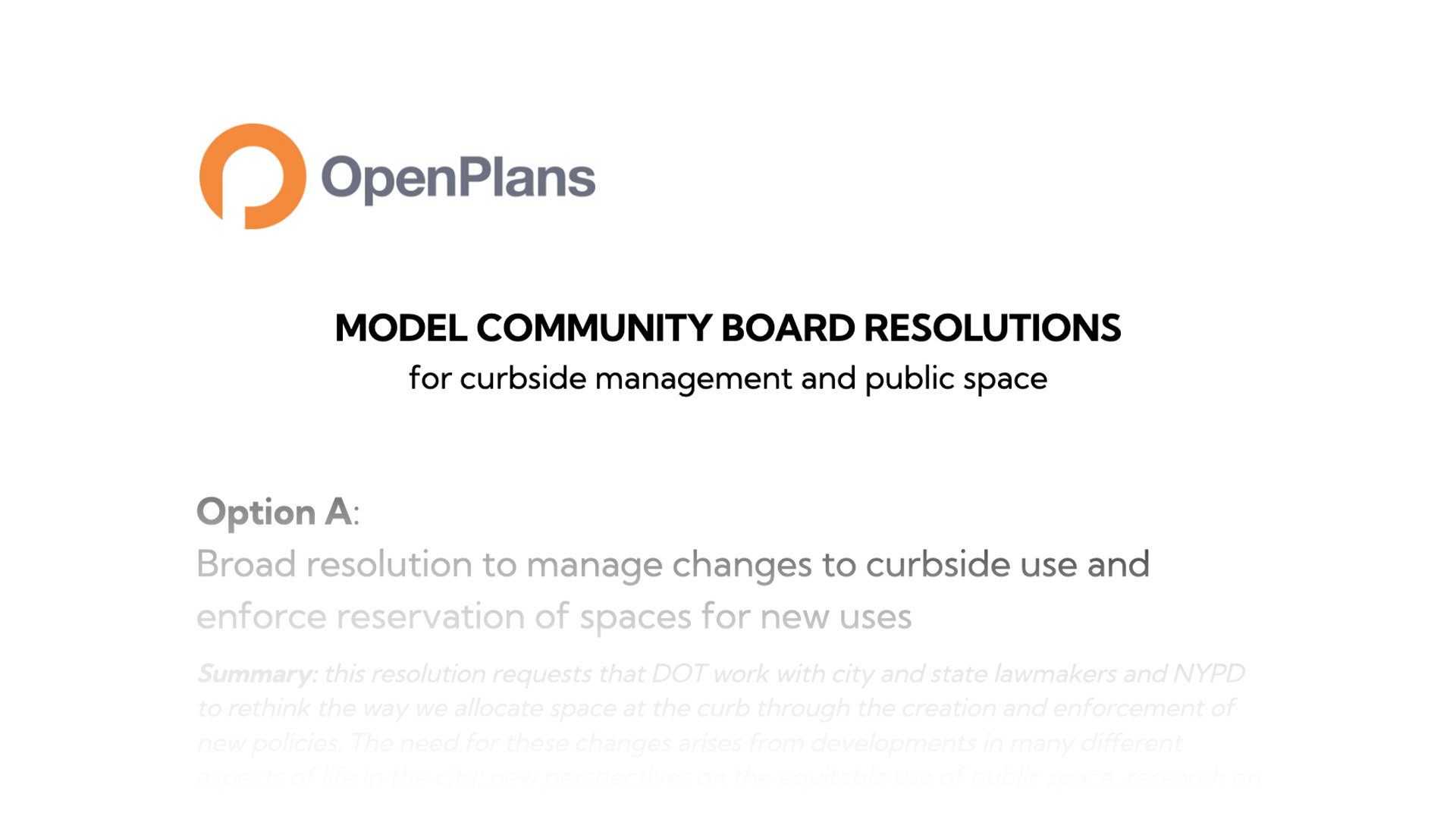Community Boards
Community Boards, as the most grassroots representation of local government, play a pivotal role in shaping housing policies, street design, and public spaces for safe, livable neighborhoods.
Community Boards make decisions on their district’s housing policies, street design, municipal services, public space, commerce, and more. They submit recommendations and proposals to a wide array of City agencies and local officials and their input can make or break a project. Community Board members are often the first to hear about pending projects in their neighborhood; and their feedback on these projects is typically heeded. If DOT is planning to install a bike lane, they seek the Community Board’s approval before moving forward. If new traffic-calming measures are planned for an avenue, the Community Board has the chance to vote yes or no. In order to build neighborhoods that are safe, livable, joyful, and accessible, it’s crucial that Community Board members are allies on these issues.
What are community boards?
Community Boards are New York City Charter-mandated advisory boards made up of community members. They make important recommendations about land use, zoning, and other local issues. There are 59 Community Boards in New York City’s five boroughs with up to 50 members each; applications are open yearly, and new members are appointed to the Board each year.
To find your community board, click here.
Why are they important?
Community Board members advise on a host of local decisions. Community Boards are consulted on what gets built in their neighborhood, proposals for street safety improvements, and whether local restaurants and bars can get a liquor license. They can also pass resolutions in support of certain projects to undertake in their communities, like comprehensive curbside reform, as well as in support of city-wide initiatives.
In many ways, Community Boards play a key part in determining whether our neighborhoods have safe and joyful public spaces that are accessible and equitable for all. While their resolutions are only advisory, most agencies often defer to the local Community Board when planning projects to undertake as well as when moving ahead with certain projects. In addition to their formal powers, elected officials and local leaders often come to Community Boards for guidance as a representation of the community at large. As a result of these factors, Community Boards are in a unique position to encourage the City to pursue projects due to community interest.
How can you get involved?
Apply for and Join your Community Board
Any New York City resident 16 years or older can apply to join their Community Board. You must live or work in the district where you are applying. You don’t need to have political ties or policy expertise to serve on your Community Board; anyone who cares about their community can and should apply.
Many boards have a particular need for diverse members. Community boards are often notably whiter, more male and older than the neighborhoods they represent, a 2020 analysis by THE CITY found. They also often lack a representative number of public school parents, renters (as opposed to homeowners) and young people. There are a disproportionate number of car owners on most Community Boards. And they often lack sufficient input from public housing residents. All these disparities mean that decisions about bike lanes, street safety near schools, or housing amenities may be influenced by a small minority of privileged community members. If we want to make our neighborhoods livable for everyone, we’ll need diverse Community Boards that truly reflect each community and their needs. If you’re passionate about street safety, public space, or just want people like you to have a voice, participating in your local board can be really impactful.
Before you apply
It’s advisable to begin attending your board meetings before deciding to apply. You will learn how your local board is run, who the members are, and how they make decisions. Many of the board applications will ask whether you’ve attended meetings. It’s also helpful to know your Borough President and City Council Members. Community Board applications are reviewed by both, so attend info sessions or other events that they hold and introduce yourself. Let them know that you care about your community.
You are applying for a public position in the community. You may be asked for a resume or references, and they could be made public down the line.
Think seriously about the issues you’re passionate about. Community Boards have small committees that dive deep on specific issues in their district; consider attending one of those meetings and plan to get involved in the commitment once you’ve been accepted.
Consider the time commitment. You may spend between 10 to 15 hours every month in meetings, prep, and learning about on the issues on the agenda.




